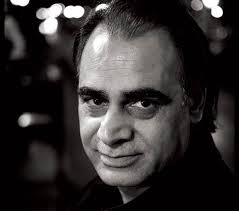The Prophet for All
Blessed are those small books that you can read at one sitting or, to say in justification of the context of this writing, during a two-hour train commute. Publishers might be scared to read this. If a product, the result of a harrowing spending spree- buying copyrights, commissioning writers, roping in editors, getting the manuscript designed and printing finally the book out-is something people can instantly share like a WhatsApp photo, it would be rather an unwelcome prospect for a mentally sound (which, sans euphemism, is financially sound) successful (i.e, books keep his/her bot boiling, not just steady his/her nerves after a lucrative, though tough job somewhere else). But blessed are those small books as for publishers as well, if after reading them, we feel others must read them and recommend all too earnestly; or if, well designed as they are, we wrap them as wedding gifts.
Muhammad: All That Matters belongs to that rare class of recommendable, giftable small books. It took me and my fellow traveller three hours to finish reading it during a Monsoon train commute. Hatchet India’s All That Matters introduces all relevant facets in philosophy, bioethics, God, Terrorism, Judaism, Radical Islam, Sustainability, Buddhism, Water, Euthanasia, Political philosophy, and human rights at an affordable price and for an easy reading. Ziauddin Sardar brings out the many facets in the life of Prophet Muhammad in his usual riveting prose in eleven chapters.
It is a good thing that the book addresses various readers at a time. My friend who was travelling with me was not a Muslim and had not yet known anything about the Prophet. The book was so illuminating that he recommended it to his friends via phone. I have read about the Prophet’s life from various other sources and have recently overseen the translation of Martin Lings’ spiritually insightful biography of the Prophet into Malayalam. I have been attracted to the way Zia critically analyses and problematicizes revisionist reading of Prophet’s life and the career of Islam by the authors like Patricia Crone. The main argument of revisionist reading is that the sources of Islam, Quran and the Prophet Muhammad are all sectarian (i.e themselves believers) and hence too subjective to bear any objective validity. They also say that there are no other sources available as is expected from a mobile mercantile economy as in Mecca. To top it all, they go to the extent of saying that Quran itself is a collection of oral tradition extent at that time came to be haphazardly codified. About those readings, Zia says: To discount all Muslim sources as prima facie as partial and prejudiced is to disparage not only all believers but the very concept of belief itself. To disqualify all believers as incapable of objectivity and critical method runs contrary to the clear evidence contained within the classical Muslim sources.
The last part of the book 100 Ideas enlists all available relevant sources on the Prophet and Islam. The book is highly recommendable to the beginners and the students of Islam. The reason why each book on the Prophet is significant is because more of the subject matter than of the author or the way he or she narrates it. The Prophet gives us something new of himself in each reading. That is the reason it is recommended for us to revisit the Quran and Prophet again and again.























Connect
Connect with us on the following social media platforms.